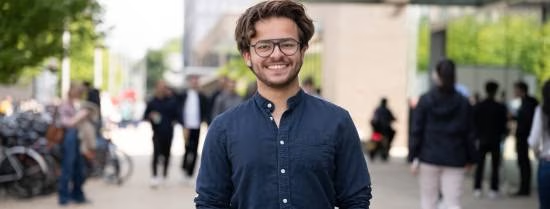What does this study entail?
Do you want to look beyond borders and contribute to managing international social challenges? Then the bachelor Management of International Social Challenges at Erasmus University Rotterdam is the right choice for you.
What is the programme about?
Migration, development, climate change, economic stability, and international crime – these are all examples of social challenges that local, national and international organisations in the public sector face and try to manage. In this bachelor programme, you will learn how to research, analyse, and contribute to strategies for public sector organizations to manage these challenges.
Testimonials
We focus on social challenges that are:
- Multi-disciplinary: they have political, economic, legal and social aspects;
- Multi-level: they involve actors and networks at the international, national, regional and local level.
- International: they surpass geographical and administrative borders.
Our programme is a diverse one. You will follow courses in public policy, international law, sociology, economics, political science and management. These courses will enable you to analyse social challenges from different perspectives. Thus you will learn to understand the various roles, perceptions and interests of relevant actors. Furthermore, you will follow courses in research methods to acquire the skills and knowledge that are necessary to conduct research on the management of social challenges.
An international programme
The bachelor programme Management of International Social Challenges truly is an international programme. The programme is taught exclusively in English to a diverse student body from all over the world. We offer an international classroom, with over 60% of our students are from countries other than the Netherlands. By choosing for the bachelor Management of International Social Challenges, you do not only look beyond borders in your studies, but you will also become part of an international network of peers. Your fellow students help you to acquire different perspectives on the issues discussed throughout the bachelor programme. In our programme, you will acquire a host of skills which will prepare you to work in international and intercultural settings and teams.
At the end of the programme you will be able to answer questions such as:
- Why addressing global challenges is difficult but can be done nevertheless;
- Why certain problems are on the political agenda and others are not;
- How migration policies are able to steer international migration flows;
- Which development strategies work and which do not;
- How technological change affects public organisations;
- How to design and conduct social research.

